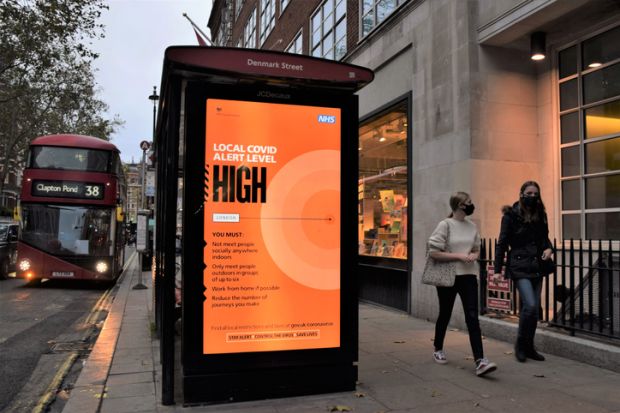The group of scientists advising the Westminster government should be more international and include experts from a wider range of disciplines, according to MPs.
In a major and wide-ranging report on “lessons learned to date” from the coronavirus pandemic, two House of Commons panels – the Commons Science and Technology Committee and the Health and Social Care Committee – warn that the Scientific Advisory Group for Emergencies (Sage) lacks “international representation”.
Although extensive international collaboration is a characteristic of the UK’s best scientific institutions, of the 87 people listed as having participated in at least one meeting of Sage, all bar one person was from a UK institution, the report notes. As other countries – particularly in East Asia – experienced coronavirus ahead of the UK, experts from these countries could have been helpful in formulating policies early on in the pandemic, according to the committees.
The report also says that Sage should also feature a “wider range of disciplines”. Evidence given to the Science and Technology Committee included experts from other academic disciplines placing “scepticism of the weight being placed on mathematical models during the pandemic”, for example.
The report also notes that until May 2020, Sage “either did not have sufficient representation from social care or did not give enough weight to the impact on the social care sector”, one of the sectors worst affected by the pandemic. “Without such input and broader expertise, ministers lacked important advice when making crucial decisions,” the report says.
The committees also found that scientific advice was hampered by a lack of data and information-sharing between public bodies. “A country with a world-class expertise in data analysis should not have faced the biggest health crisis in a hundred years with virtually no data to analyse,” the report says. “Protocols to share vital information between public bodies were absent…Scientific accomplishment was hampered by operational inadequacy.”
However, the report said that during the first three months of the Covid pandemic, the UK followed the wrong policy when it came to containing versus delaying the coronavirus, which “reflected a consensus between official scientific advisers and the government”. The report refers to this as indicating a “degree of groupthink” that stopped the UK being as open to other approaches, such as a strong containment policies that were used in other countries.
According to the report, “ministers should have the confidence to follow a scientific approach themselves – being prepared to take a more robust approach to questioning and challenging the advice given”.
However, the committees highlight that if the government had implemented a “circuit break” lockdown in September, as advised by Sage scientists, it would probably have stemmed the flow of the Kent/Alpha variant that raged at the end of 2020. “Ministers were clearly over-optimistic in their assumption that the worst was behind us during the summer months of 2020,” according to the report.
The report also praises UK vaccine research as “the most successful component of the United Kingdom’s response to the Covid-19 pandemic”.
“It is clear that funding for such internationally excellent research institutions is an investment that pays off in multiple ways – advancing knowledge, training scientists to become world-class – that are not immediate,” the report says.
Doug Brown, chief executive of the British Society for Immunology, agreed that “the UK’s research base has made a hugely positive contribution to hastening control of the pandemic”.
“Additionally, the coming together of the research community through a ‘team science’ approach to speed up our understanding of Covid-19 has also vastly benefited the UK’s response to the pandemic,” he said.
Dr Brown added that these achievements were only possible due to previous investment and strategic focus on life sciences research in the preceding years, which must continue. “We now have the opportunity to build on this learning to put the infrastructure, focus and expertise in place to allow us to maintain momentum and plan for a range of future pandemic scenarios,” he said.
Trish Greenhalgh, professor of primary care health services at the University of Oxford, said that a “striking feature of the report as a whole is how it hints at a less than healthy relationship between government and its formal scientific advisory bodies”.
“It would appear that Sage, [Civil Contingencies Committee] Cobra, Public Health England and other bodies repeatedly dismissed the precautionary principle in favour of not taking decisive action until definitive evidence emerged and could be signed off as the truth,” she added.
Register to continue
Why register?
- Registration is free and only takes a moment
- Once registered, you can read 3 articles a month
- Sign up for our newsletter
Subscribe
Or subscribe for unlimited access to:
- Unlimited access to news, views, insights & reviews
- Digital editions
- Digital access to THE’s university and college rankings analysis
Already registered or a current subscriber? Login









